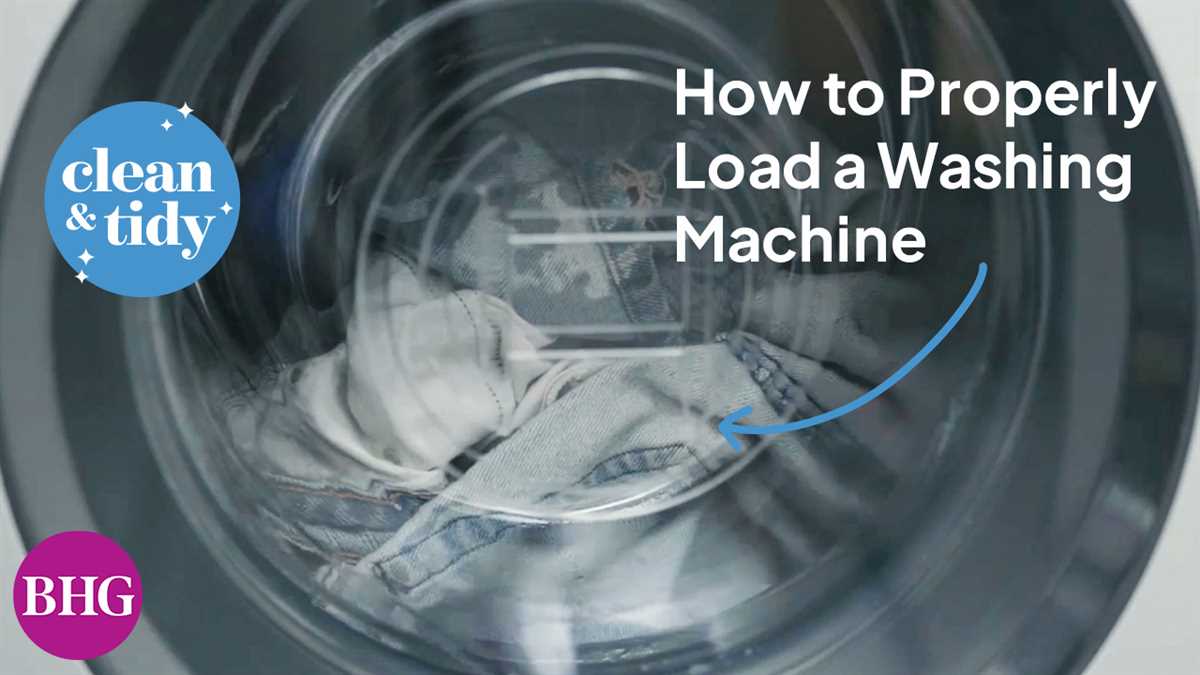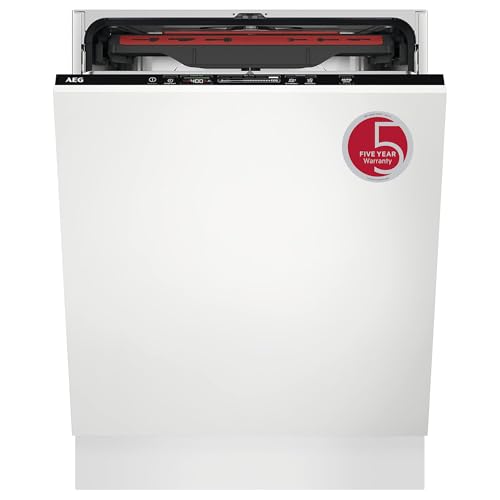




When it comes to doing laundry, there are always questions about the best practices. One common dilemma is whether or not to zip pockets before washing clothes. Some people argue that zipping pockets can help protect the clothes inside, while others believe it doesn’t make a significant difference. To shed some light on this topic, we consulted experts in laundry care to get their advice.
The main argument for zipping pockets before washing clothes is that it prevents items from falling out or getting tangled during the washing cycle. Items like loose change, keys, or small accessories can easily get misplaced or damaged if they are not secured inside zipped pockets. Additionally, zipping pockets can help prevent small clothing items, such as socks or underwear, from getting stuck in the pockets of larger garments.
There are some situations where zipping pockets may not be necessary. For example, if the pockets are empty or only contain items that are not easily damaged or misplaced, such as tissues or paper. In these cases, zipping pockets may be more of a personal preference rather than a necessary step in the laundry process. However, if you have any doubts or concerns, it is generally recommended to zip pockets to ensure the safety of your clothes and any items inside.
Expert Tip: “Zipping pockets before washing clothes is a good habit to develop. It reduces the risk of losing or damaging small items and helps prevent tangling or snagging during the washing cycle. It may seem like a small step, but it can make a big difference in the longevity and quality of your clothes.” – Laundry Care Expert
In conclusion, the general consensus among laundry care experts is that it is advisable to zip pockets before washing clothes. While it may not be necessary in all situations, it can help protect your clothes and any small items inside. It is a simple step that can save you from potential damage or loss, and ultimately contribute to the overall care and maintenance of your garments.
Why it’s Important to Zip Pockets Before Washing Clothes
Zipping pockets before washing clothes may seem like a small and insignificant step, but it is actually an important one that can help preserve the quality of your garments and prevent damage to your washing machine. Here are a few reasons why it’s important to zip pockets before washing clothes:
1. Protecting the clothes
When you leave pockets unzipped, there is a risk that small items like coins, keys, or even tissues can fall out and damage the clothes during the washing process. These items can create scratches or tears in delicate fabrics, causing irreparable damage.
2. Preventing tangling
Leaving pockets unzipped can also lead to tangling of clothes. Zippers and other fasteners can catch on other items in the load, creating knots and entanglements. This can cause stretching or distortion of the garments, making them lose their shape or fit.
3. Protecting the washing machine
Unzipped pockets can not only damage clothes but also pose a risk to your washing machine. Small items stuck in pockets can get jammed in the machine’s drum or pump, causing mechanical issues and potentially expensive repairs. Additionally, coins or other objects left unzipped can be noisy and damage the interior of the machine during the wash cycle.
4. Improving washing efficiency
By zipping pockets, you ensure that the water, detergent, and agitation reach all parts of the garment evenly, resulting in a more effective and thorough cleaning. When pockets are left open, they can create barriers, preventing proper cleaning and leaving behind dirt or stains.
5. Saving time and effort
Taking a few seconds to zip pockets before washing clothes can save you time and effort in the long run. You won’t have to deal with searching for lost items or removing tangled clothes from the washing machine. It also reduces the chances of having to repair or replace damaged garments.
In conclusion, zipping pockets before washing clothes is a simple yet essential step to protect your clothes, washing machine, and save time and effort. It ensures that your garments receive a proper clean without the risk of damage or tangling. So don’t forget to zip those pockets before doing your laundry!
Protect Your Garments from Damage
When it comes to washing your clothes, it’s important to take precautions to protect your garments from damage. One simple way to do this is by zipping up any pockets before tossing your clothes into the washing machine.
Unzipped pockets can be a recipe for disaster in the laundry. Loose items such as coins, keys, or even pens can find their way out of pockets during the wash cycle. These loose items can then damage both your clothes and the washing machine itself. A pen, for example, may leak ink onto your clothes, leaving permanent stains.
In addition to preventing damage to your clothes, zipping up your pockets can also help prevent tangling. Loose strings or other small items can become tangled in the washing machine’s agitator, leading to potential damage to both your clothes and the machine.
Another reason to zip up your pockets before washing is to preserve the shape of your garments. If you have a delicate item, such as a sweater, leaving the pockets unzipped can cause the fabric to stretch or deform during the wash cycle.
By taking the simple step of zipping up your pockets before washing, you can protect your clothes from damage and extend their lifespan. This small habit can save you time, money, and the frustration of dealing with ruined or misshapen garments.
So, before you toss your clothes into the washing machine, take a quick moment to zip up those pockets. Your clothes will thank you!
Prevent Loss of Small Items
If you have ever experienced the disappointment of finding a lost item after doing laundry, you know how frustrating it can be. Small items such as coins, jewelry, or even buttons can easily slip out of pockets and get lost in the washing machine or dryer.
To avoid this common problem, taking the time to zip up the pockets of your clothes before washing them can make a significant difference. By securing the pockets, you can prevent small items from falling out and getting lost during the washing process.
Additionally, zipping up your pockets can help to protect delicate items. For example, if you have a delicate necklace or a small piece of clothing with delicate embellishments, such as sequins or beads, zipping up the pockets can prevent these items from getting tangled or damaged in the washing machine.
Not only can zipping up pockets help prevent the loss or damage of small items, but it can also make the process of doing laundry more efficient. By zipping up the pockets, items are less likely to get caught in the washing machine’s agitator or the dryer’s lint trap, reducing the risk of damage to both your clothes and your appliances.
Overall, taking the simple step of zipping up pockets before washing your clothes can help prevent the loss of small items, protect delicate items, and make your laundry routine more efficient.
Avoid Damage to Your Washing Machine
1. Check for foreign objects
Before loading your clothes into the washing machine, make sure to double-check all pockets for any foreign objects. Items such as coins, keys, and other small objects can cause damage to the washing machine’s drum or pump if they are left inside during the wash cycle.
2. Remove loose items
Any loose items, such as belts or detachable straps, should be removed from your clothes before washing. These items can get tangled around the agitator or other moving parts of the machine, causing them to become damaged or malfunction.
3. Separate delicate garments
If you have delicate garments, like lingerie or clothing with sequins, it’s best to wash them separately or place them in a laundry bag to prevent damage. These items can snag or tear on other fabrics or parts of the washing machine.
4. Use appropriate detergent
Using the right detergent for your washing machine is essential to avoid damage. Different machines may require different types of detergent, so make sure to read the manufacturer’s instructions or consult the user manual. Using the wrong detergent can lead to clogged filters or other issues.
5. Follow load capacity guidelines
Overloading the washing machine can put excess strain on the motor and other components, potentially leading to damage. Follow the load capacity guidelines provided by the manufacturer to ensure that you are not overloading the machine.
6. Clean the machine regularly

Regularly clean the washing machine to remove any build-up of dirt, detergent residue, or lint. This can help prevent clogs and improve the overall efficiency of the machine. Refer to the manufacturer’s instructions on how to properly clean your specific model.
7. Avoid using harsh chemicals
Avoid using harsh chemicals or bleach directly in the washing machine, unless recommended by the manufacturer. These substances can cause damage to the machine’s components and may void your warranty.
8. Check water inlet and drain hoses
Regularly inspect the water inlet and drain hoses for any signs of wear or damage. If you notice any leaks, cracks, or bulges in the hoses, replace them immediately. Damaged hoses can result in water leakage, leading to potential flooding or damage to the machine.
9. Avoid excessive use of fabric softeners
While fabric softeners can make your clothes feel softer, using excessive amounts can clog the washing machine’s drainage system and reduce its efficiency. Follow the instructions on the fabric softener bottle and use the appropriate amount for your load.
10. Follow manufacturer’s guidelines
Overall, the best way to avoid damage to your washing machine is to carefully follow the manufacturer’s guidelines. These guidelines will provide specific instructions on loading, maintenance, and detergent usage, ensuring that you use your machine correctly and prevent any unnecessary damage.
Save Time and Money
By zippering your pockets before washing your clothes, you can save both time and money in multiple ways.
Prevent Damage to Clothing

When you zip your pockets, you minimize the risk of items getting caught in the washing machine’s agitator or tangled in other clothes. This can prevent damage to your clothing, such as tears or snags.
Retain Small Items
Zippering your pockets ensures that small items, such as coins, keys, or jewelry, stay inside and don’t get lost during the wash cycle. This can save you the hassle of having to search for missing items or replace them.
Reduce Laundry Time
By zippering your pockets, you can save time during the laundry process. You won’t have to worry about emptying your pockets before washing or checking each garment for items left behind. This can streamline the laundry process and free up time for other activities.
Extend the Lifespan of Clothing
When you zip your pockets, you reduce the risk of items like coins or keys banging against the sides of the washing machine. This helps to prevent premature wear and tear on your clothes, allowing them to last longer and saving you money on replacements.
Prevent Damage to Washing Machine
Items left in pockets can cause damage to your washing machine’s drum or agitator. By zippering your pockets, you can prevent this damage and avoid costly repairs.
Avoid Additional Expenses
If items left in pockets during washing damage the machine or other clothes, you may incur additional expenses for repairs or replacement garments. By zippering your pockets, you can avoid these unnecessary costs.
Overall Convenience
Zippering your pockets before washing your clothes is a simple habit that can save you time and money in the long run. It provides convenience and peace of mind, knowing that your clothes, small items, and washing machine are protected.
Expert Advice on Best Clothing Care Practices

1. Sort Laundry Properly
One of the most important steps in clothing care is sorting your laundry properly. This helps to prevent color bleeding, maintain fabric quality, and ensure the longevity of your garments. Group similar colors together and wash them separately to avoid any color transfer.
2. Check Clothing Labels
Always check the care labels on your clothing before washing. These labels provide essential information about the best washing method for each garment. Pay attention to the recommended water temperature, wash cycle, and any special instructions.
3. Zip Up Pockets
It is generally recommended to zip up pockets before washing clothes. This helps to prevent any small items or loose threads from getting tangled or damaging other garments during the washing and drying process.
4. Use the Right Amount of Detergent
Using the right amount of detergent is crucial for effective cleaning and preventing build-up. Follow the instructions on the detergent packaging and adjust the amount based on the size of your load and the level of dirtiness of your clothes.
5. Avoid Overloading the Washing Machine
Avoid overloading the washing machine as it can lead to inadequate cleaning and increased wear and tear on your clothes. Follow the recommended load capacity of your washing machine and leave enough space for the clothes to move freely.
6. Choose the Correct Wash Cycle

Selecting the correct wash cycle is important for maintaining the quality of your clothes. Delicate fabrics may require a gentle or handwash cycle, while sturdier items can handle a regular or heavy-duty cycle. Be mindful of the fabric type and the garment’s care instructions.
7. Use Fabric Softener Appropriately
If your clothing allows the use of fabric softener, follow the recommended amount and pour it into the designated dispenser. Overuse of fabric softener can leave residue on clothes, reducing their absorbency and overall freshness.
8. Hang Dry or Tumble Dry?
Pay attention to the care labels to determine whether the garment should be hang dried or tumble dried. Some delicate items or garments with specific prints or decorations may require air drying to prevent shrinkage or damage.
9. Iron or Steam with Care
If ironing is necessary, check the fabric care instructions to determine the appropriate ironing temperature. Iron inside out if possible, and use a pressing cloth for delicate fabrics to avoid direct contact with the iron.
10. Proper Storage
Properly storing your clothes can also help maintain their quality. Fold or hang garments neatly to prevent wrinkles and ensure they have enough breathing space in your closet. Store items in a cool, dry place away from direct sunlight to prevent fading or discoloration.
11. Regularly Clean Your Washing Machine
To maintain optimal performance and prevent any unpleasant odors, it is important to regularly clean your washing machine. Follow the manufacturer’s instructions for cleaning and descaling, and periodically wipe down the drum and detergent dispenser.
12. Seek Professional Help for Specialty Items

If you have specialty items such as leather or fur clothing, it is best to seek professional help for their cleaning and care. These items require specific expertise and may need to be taken to a professional cleaner to ensure their longevity and quality.
By following these expert tips on clothing care, you can help extend the life of your clothes and ensure they always look their best.
FAQ
Should I zip up the pockets before washing clothes?
Yes, it’s generally a good idea to zip up the pockets before washing clothes. This helps to prevent small items or loose threads from getting caught in the zipper or getting tangled during the washing process.
What happens if I forget to zip up the pockets before washing clothes?
If you forget to zip up the pockets before washing clothes, there is a chance that small items like coins, paper clips, or even small pieces of tissue can get stuck in the zipper or come out and cause damage to other garments in the load. It’s best to always double-check and zip up the pockets before washing.
Can leaving pockets unzipped during washing cause any damage?
Leaving pockets unzipped during washing can potentially cause damage. The items in the pockets, like coins or keys, can bang against the drum or other garments, causing tears or holes. Additionally, loose threads or strings can get caught in the zipper, resulting in damage to the fabric or the zipper itself.
Does it really make a difference if I zip up the pockets or not?
Yes, it does make a difference whether you zip up the pockets or not. Zipping up the pockets helps to protect both the clothes and the washing machine. It prevents small items from getting caught in the zipper or causing damage to other garments. It’s a simple step that can save you from potential problems in the future.
Should I only zip up the back pockets or all pockets?
It’s best to zip up all pockets, including both back and front pockets. This ensures that no small items or loose threads get tangled or caught in the zipper. By zipping up all pockets, you’ll have peace of mind knowing that your clothes will come out of the wash undamaged and ready to wear.
Should I zip up the pockets before washing my clothes?
Yes, it is recommended to zip up the pockets before washing your clothes. This will prevent small items, such as coins or keys, from getting lost or causing damage to the washing machine.
What can happen if I don’t zip up the pockets before washing my clothes?
If you don’t zip up the pockets before washing your clothes, small items like coins, keys, or even tissues can fall out and get lost inside the washing machine. This can cause damage to the machine or clog the drains, leading to costly repairs.














